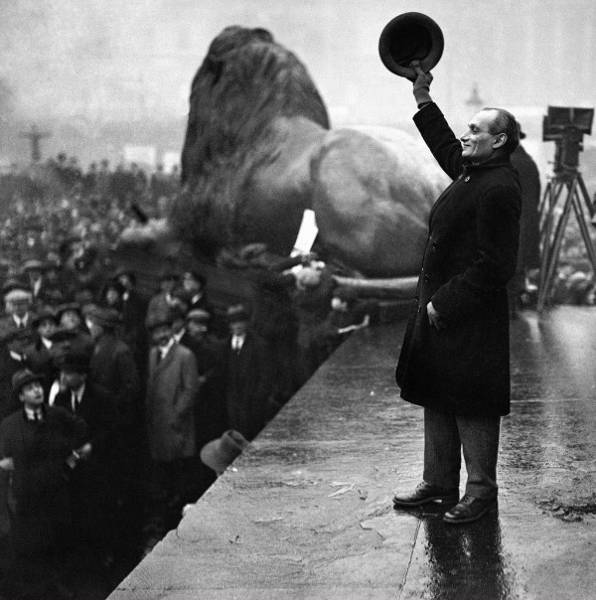
Secret Affairs: Britain's Collusion with Radical Islam by Mark Curtis (Serpent's Tail)
When Iran’s last democratically elected Prime Minister set about nationalising the Anglo-Iranian Oil Company, Britain sought to replace him with a “dictator” – in the words of our then Ambassador to Tehran – who would “settle the oil question on reasonable terms”. In the process, the Foreign Office actively supported a man they saw as “a complete political reactionary,” Ayatollah Kashani, whose hard-line followers organised the large-scale protests that preceded the 1953 coup, which installed the arch-conservative – but pro-Western – Shah. Kashani went on to mentor Ruhollah Khomeini, who in 1979 overthrew the Shah and installed the repressive theocracy that continues in power today.
In Secret Affairs, Mark Curtis delivers an unsettling verdict on the conduct of British foreign policy over the last hundred years. In pursuit of our national interest, the UK has repeatedly sided with the most brutal and conservative forces of political Islam – and aggressively conspired against democratic governments around the globe. While this has yielded temporary gains, in the long run the policy has proved enormously costly, even in its own cynical terms.
Across the Muslim world, for most of the past century, Britain’s chief enemy has been not religious extremism but the secular nationalists who sought to wrest back control of their country’s resources from the former colonial powers. Time and again, from Egypt to Iran to Indonesia, we have sought to undermine such leaders by arming and training their extremist opponents, while giving generous support to Islamist dictators willing to do business on favourable terms. In the process, we have contributed directly to the growth of radical Islam worldwide, and the consequences are now coming home to haunt us.
Eager to retain a strategic foothold in South Asia – in Churchill’s words, to “keep a bit of India” after independence in 1947 – Britain was instrumental in the creation of Pakistan, an artificial state with little to hold it together but its identity as a Muslim nation. In recent decades, successive Pakistani governments have sought to bolster their power by fanning religious fervour at home, and backing militant Islamists across the region. Yet Pakistan has long been treated as a key UK ally, and a favoured recipient of military aid – even as, so Curtis claims, Pakistani intelligence services have continued backing the jihadi groups now fighting British forces in Afghanistan.
Closer still has been our relationship with Saudi Arabia, whose modern form Britain also helped shape, at the close of the colonial era. Seeking to position itself as the leader of the Muslim world, the Saudi state has, since the 1970s, spent an estimated $50 billion promoting its fundamentalist brand of “Wahhabism” around the globe, in what one US think-tank describes as the “largest worldwide propaganda campaign ever mounted”. In positioning the UK as a favoured trading partner for Saudi oil, arms and, latterly, financial investments, Labour and Conservative governments alike have systematically played down the true character of the regime, and its links to global terror.
The picture that emerges is of a nation locked into a series of uncomfortable alliances – of questionable overall benefit even to our narrow self-interest – whose nature our government is unable fully to acknowledge. The issue seems exacerbated by the extraordinary levels of secrecy around UK foreign policy, hindering effective debate about the decisions being taken in our name. Many of the files surrounding Britain’s abortive intervention in Suez, for example, still remain classified half a century later. Due to the UK’s controversial “30-year rule”, much of the more recent historical record is simply missing.
Curtis seems nonetheless to have done an excellent job with the sources available, assembling an impressive array of leaks and government admissions, to argue that, at least in ethical terms, UK foreign policy has changed little in recent decades. He makes a compelling, if somewhat disheartening, case.

